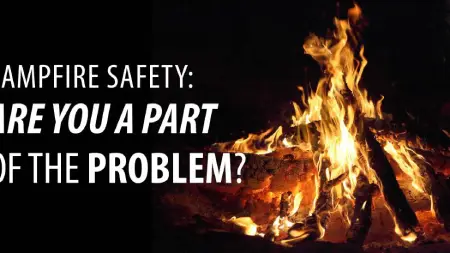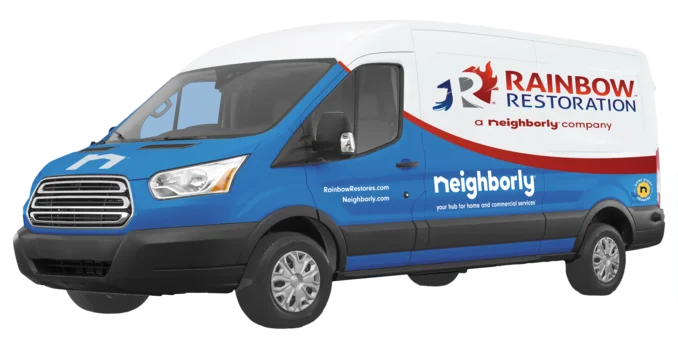
Campfire safety is crucial to prevent wildfires and injuries. Rainbow Restoration highlights these key practices for responsible campfire use:
|
Fire safety is no joke, and that goes for campfires as well. Whether you’re camping in the middle of the woods or lounging around a backyard fire pit, you need to exercise as much caution lighting a fire outside as you would with an indoor fireplace or wood-burning stove. Failure to follow fire regulations can result in fines of $500 to $5,000 in some areas.
According to the National Fire Protection Association, an average of 915 brush, grass, and forest fires are reported in the US every day, 10 percent of which occur right outside single-family homes. Don’t let careless use of your fire pit add to this statistic!
Whether your goal is to avoid a fine or prevent a house fire, abide by the following campfire safety tips.
Safe Fire Pit Placement
Build your fire pit at least 10 feet away from any surrounding structures, building overhangs, or combustible materials. Also, watch out for low-hanging branches and power lines.
Place the fire pit itself on a noncombustible surface, such as concrete, brick, or stone pavers. If you want to place a portable fire pit on your wood deck, only use a pedestal-style pit, which is raised up on legs to ensure ample heat ventilation, and place a noncombustible surface below the fire pit for added safety.
Lighting the Fire
Before you strike a match, check the weather forecast. Skip the fire if it’s windy or high winds are in the forecast, as this could blow embers around and potentially start a fire outside the pit. Clear away any leaves, pine needles, and twigs around the fire pit to help prevent any stray embers from starting a fire.
To get the fire going, place a crumpled piece of paper in the pit and light it with a match. Place small sticks on top, and when they catch fire, add larger sticks. Never pour lighter fluid or gasoline directly onto the fire to make it grow faster.
Maintaining the Fire
To improve fire safety, keep the blaze small. There’s no reason to light a roaring bonfire, and the bigger the flames, the greater the potential for disaster. Cover the pit with a screen to help maintain a smaller fire and prevent sparks from escaping. If you have a gas fire pit, control the height of the flames manually with a keyed gas valve.
Only burn appropriate products such as dry firewood, paper, twigs, and kindling. Don’t burn plastics or products with adhesives since these can send plumes of dark, chemically laden smoke into the air.
Putting Out the Fire
Keep a container of water or a garden hose nearby at all times in case the fire gets out of control. Use these products at the end of the night to douse wood-burning fire pits. Make sure the ashes are cool before you leave, and cover them with dirt for good measure. Dispose of cooled ashes in a metal container with a sealed lid and store this container on a noncombustible surface in the shed, garage, or elsewhere. For gas fire pits, simply turn the knob to shut off the gas at the end of the night.
Additional Safety Tips
- Check with your local fire department for any restrictions on outdoor fire pits. In some cities, wood-burning fireplaces and fit pits are illegal.
- Never leave a burning fire unattended.
- Carefully supervise children and pets around the fire pit and never leave them alone with the fire.
- Only cook in your fire pit if you’ve installed one specifically designed for this purpose.
- When not in use, cover the pit to protect it from rainwater, which can destroy porous ceramic components in gas fire pits, including simulated logs.
- Check gas burners periodically and clean them with a soft brush to remove buildup and help ensure the gas burns cleanly and properly.
Fire Restoration Services
Despite your best efforts, fire pits still have the potential to get out of control. If your home has been damaged by a fire, count on Rainbow Restoration® to perform fire restoration services. We’re here to help restore your home and get your life back on track.
For Further Reading:
Common Household Firestarters Identified
The Hidden Health Hazards of Smoke and Soot
